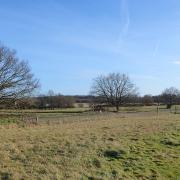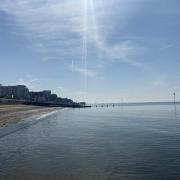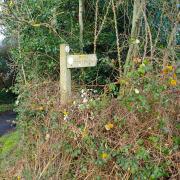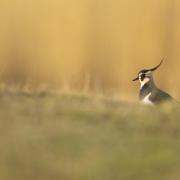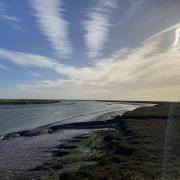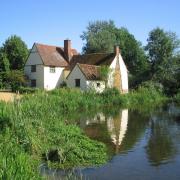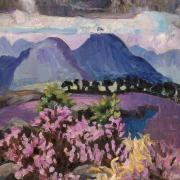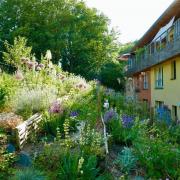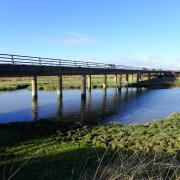Essex Wildlife Trust’s first Nature Nursery opened in October 2021 and is a celebration of wildlife, learning and nature connectedness. Find out more about the children, staff and ethos of this idyllic site, as told in an interview with Nursery Manager, Mel Mewton.
Hi Mel, thanks for talking to us today. Can you tell everyone what your role and background is?
Hi, I’m Mel Mewton and I’m the manager at Essex Wildlife Trust’s nursery, Nature Nursery. I’ve been with the Trust for just under three years but I’ve been working with young children for nearly 30 years. My background is primarily working with corporate nurseries so, when I joined the Trust, it was a really beautiful, eye-opening experience to work with young children and be outdoors in nature – it felt like my perfect job.
It sounds like the most wonderful role! Could you tell us some more details about the Nature Nursery itself?
The Nature Nursery is the first of its kind but hopefully the first of many. We are based in Great Wigborough, at Essex Wildlife Trust’s headquarters. This means our nursery is part of the 282-hectare nature reserve, giving us a background of meadows and woodland that we venture into often. We have a beautiful Mongolian yurt with a log burner, perfect for cosy reading, storytelling and role play. Then, we have access to a vegetable garden, outdoor shelter and hammocks that swing in the breeze. We are like Heathrow for birds, so the children often laze in the hammocks or on the grass watching all the birds pass by. They can distinguish the difference between blue tit and great tit bird songs.
I noticed you have a huge polytunnel here, do the children get involved in growing things?
The whole idea of the nursery is to be sustainable so that young children can become resilient individuals in the future. The children plant seeds, which we do with the parents too. We like to encourage our children to learn where their food comes from. At the same time, they develop a real love of nature as they nurture their seedlings. The children find out how to distinguish different plants, and they even take part in cooking activities with the home-grown ingredients using our pizza oven. In the winter, we make soups and stews.
For people that have never heard of an outdoor nursery, how would you say this differs from a ‘traditional’ nursery?
There is no comparison. Our children have the freedom and the autonomy to plan their day. We have such a large space for children to be curious, and we’ve set up some fantastic enabling environments, created by both staff, children and their parents. Here, children can dig, investigate, create and explore the living world around them. We still follow the same Early Years curriculum that every private and voluntary independent setting follows, but we enrich this with our natural environment.

As a nursery that’s part of the Wildlife Trust movement, how do you make nature and wildlife an integral part of children’s experience here?
Our nursery setting changes every day. The weather changes, the seasons change, and this makes for a dynamic learning environment. Children learn to determine how the weather evolves, they talk about different cloud types and what that might bring. We say to our families ‘there’s no such thing as bad weather, just bad clothing’ as we are pretty much always outdoors. The beauty of the nursery is that children care. They see invertebrates in the woods and they carefully put logs back down to keep their habitats safe. They know the difference between a centipede and a millipede, at the age of two to five.
Why do you think it is important that young people are connected to nature from an early age?
Because I think that, nowadays, we have to commit to saving the planet and young people are the future. They are the David and Davina Attenboroughs of their generation, the ones that are going to hold the planet in their hands, and it’s vital they show appreciation and a love of nature. Our children learn about not wasting water for the planet. If they see litter, they pick it up because they know the consequences of this on wildlife, from this young age.
You recently had a fantastic Ofsted report. What were the highlights of this for you?
It was wonderful that the report highlighted so many positive aspects about the nursery. Our staff were praised for their safeguarding, care and communication with the children. The setting was deemed ‘idyllic’, and there were notable comments on how ambitious our curriculum is and the progress our children make academically. Both mathematics and vocabulary development were praised. For me, the highlight was that the report recognised children ‘are becoming considerate citizens who care for their world’, to quote the inspector.

Top tips for helping little ones connect to nature:
1. Get out on nature walks: make an effort to spend more time outdoors when you can. Even a walk to school can be a nature walk!
2. Use all the senses: ask children what they can see, smell, hear and touch, whether you are in a woodland or by the sea.
3. Make it fun: ask children to spot things that they might not usually look at. For example, how many different colour leaves are there in this tree?
4. Use your own outdoor space: whether you have acres of space or a cosier garden, you can connect to nature. Could you build a miniature sensory garden using herbs
and brightly coloured plants that will attract pollinators? What about a mini-rockpool with stones and shells?
5. Develop their learning: make sure you use full vocabulary when talking about habitats and wildlife. Asking questions to prompt their learning will help, and the more imaginative the better!
Get in touch
Nature Nursery places are currently available and Open Days are held regularly. Please visit the Trust’s website for details at www.essexwt.org.uk/what-we-do/outdoor-learning/nature-nursery or email: info@naturenursery.org.uk




